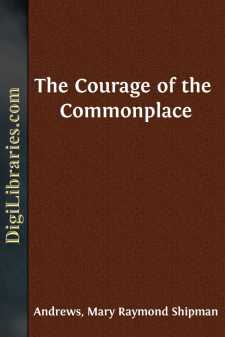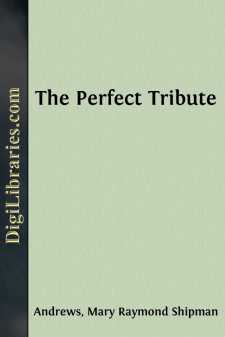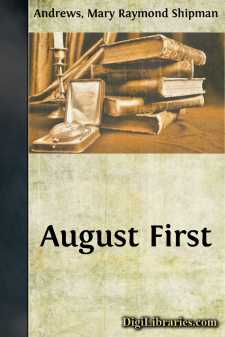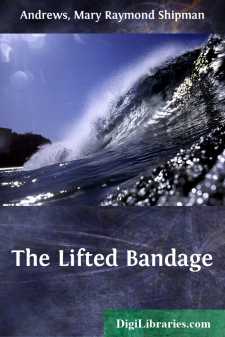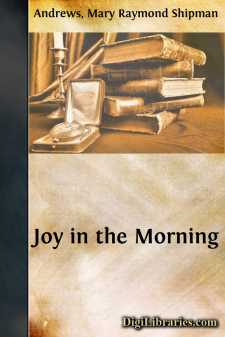Categories
- Antiques & Collectibles 13
- Architecture 36
- Art 48
- Bibles 22
- Biography & Autobiography 813
- Body, Mind & Spirit 142
- Business & Economics 28
- Children's Books 17
- Children's Fiction 14
- Computers 4
- Cooking 94
- Crafts & Hobbies 4
- Drama 346
- Education 46
- Family & Relationships 57
- Fiction 11829
- Games 19
- Gardening 17
- Health & Fitness 34
- History 1377
- House & Home 1
- Humor 147
- Juvenile Fiction 1873
- Juvenile Nonfiction 202
- Language Arts & Disciplines 88
- Law 16
- Literary Collections 686
- Literary Criticism 179
- Mathematics 13
- Medical 41
- Music 40
- Nature 179
- Non-Classifiable 1768
- Performing Arts 7
- Periodicals 1453
- Philosophy 64
- Photography 2
- Poetry 896
- Political Science 203
- Psychology 42
- Reference 154
- Religion 513
- Science 126
- Self-Help 84
- Social Science 81
- Sports & Recreation 34
- Study Aids 3
- Technology & Engineering 59
- Transportation 23
- Travel 463
- True Crime 29
The Militants Stories of Some Parsons, Soldiers, and Other Fighters in the World
Description:
Excerpt
The Bishop was walking across the fields to afternoon service. It was a hot July day, and he walked slowly—for there was plenty of time—with his eyes fixed on the far-off, shimmering sea. That minstrel of heat, the locust, hidden somewhere in the shade of burning herbage, pulled a long, clear, vibrating bow across his violin, and the sound fell lazily on the still air—the only sound on earth except a soft crackle under the Bishop's feet. Suddenly the erect, iron-gray head plunged madly forward, and then, with a frantic effort and a parabola or two, recovered itself, while from the tall grass by the side of the path gurgled up a high, soft, ecstatic squeal. The Bishop, his face flushed with the stumble and the heat and a touch of indignation besides, straightened himself with dignity and felt for his hat, while his eyes followed a wriggling cord that lay on the ground, up to a small brown fist. A burnished head, gleaming in the sunshine like the gilded ball on a church steeple, rose suddenly out of the waves of dry grass, and a pink-ginghamed figure, radiant with joy and good-will, confronted him. The Bishop's temper, roughly waked up by the unwilling and unepiscopal war-dance just executed, fell back into its chains.
"Did you tie that string across the path?"
"Yes," The shining head nodded. "Too bad you didn't fell 'way down. I'm sorry. But you kicked awf'ly."
"Oh! I did, did I?" asked the Bishop. "You're an unrepentant young sinner. Suppose I'd broken my leg?"
The head nodded again. "Oh, we'd have patzed you up," she said cheerfully. "Don't worry. Trust in God."
The Bishop jumped. "My child," he said, "who says that to you?"
"Aunt Basha." The innocent eyes faced him without a sign of embarrassment. "Aunt Basha's my old black mammy. Do you know her? All her name's longer'n that. I can say it." Then with careful, slow enunciation, "Bathsheba Salina Mosina Angelica Preston."
"Is that your little bit of name too?" the Bishop asked, "Are you a Preston?"
"Why, of course." The child opened her gray eyes wide. "Don't you know my name? I'm Eleanor. Eleanor Gray Preston."
For a moment again the locust had it all to himself. High and insistent, his steady note sounded across the hot, still world. The Bishop looked down at the gray eyes gazing upward wonderingly, and through a mist of years other eyes smiled at him. Eleanor Gray—the world is small, the life of it persistent; generations repeat themselves, and each is young but once. He put his hand under the child's chin and turned up the baby face.
"Ah!" said he—if that may stand for the sound that stood for the Bishop's reverie. "Ah! Whom were you named for, Eleanor Gray?"
"For my own muvver." Eleanor wriggled her chin from the big hand and looked at him with dignity. She did not like to be touched by strangers. Again the voices stopped and the locust sang two notes and stopped also, as if suddenly awed.
"Your mother," repeated the Bishop, "your mother! I hope you are worthy of the name."
"Yes, I am," said Eleanor heartily. "Bug's on your shoulder, Bishop! For de Lawd's sake!" she squealed excitedly, in delicious high notes that a prima donna might envy; then caught the fat grasshopper from the black clerical coat, and stood holding it, lips compressed and the joy of adventure dancing in her eyes. The Bishop took out his watch and looked at it, as Eleanor, her soul on the grasshopper, opened her fist and flung its squirming contents, with delicious horror, yards away. Half an hour yet to service and only five minutes' walk to the little church of Saint Peter's-by-the-Sea.
"Will you sit down and talk to me, Eleanor Gray?" he asked, gravely.
"Oh, yes, if there's time," assented Eleanor, "but you mustn't be late to church, Bishop. That's naughty."
"I think there's time. How do you know who I am, Eleanor?"
"Dick told me."
The Bishop had walked away from the throbbing sunshine into the green-black shadows of a tree, and seated himself with a boyish lightness in piquant contrast with his gray-haired dignity—a lightness that meant athletic years. Eleanor bent down the branch of a great bush that faced him and sat on it as if a bird had poised there. She smiled as their eyes met, and began to hum an air softly. The startled Bishop slowly made out a likeness to the words of the old hymn that begins
Am I a soldier of the Cross,A follower of the Lamb...?


